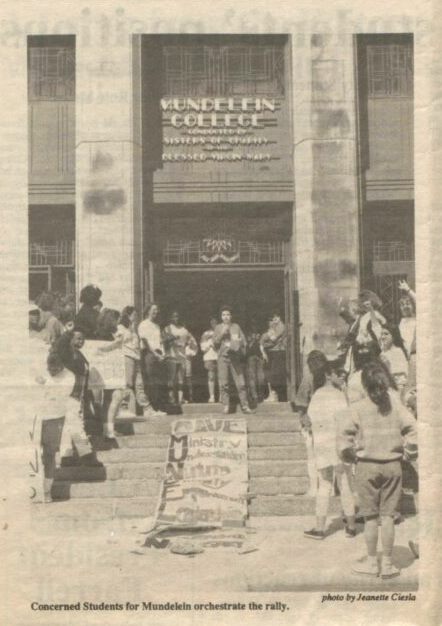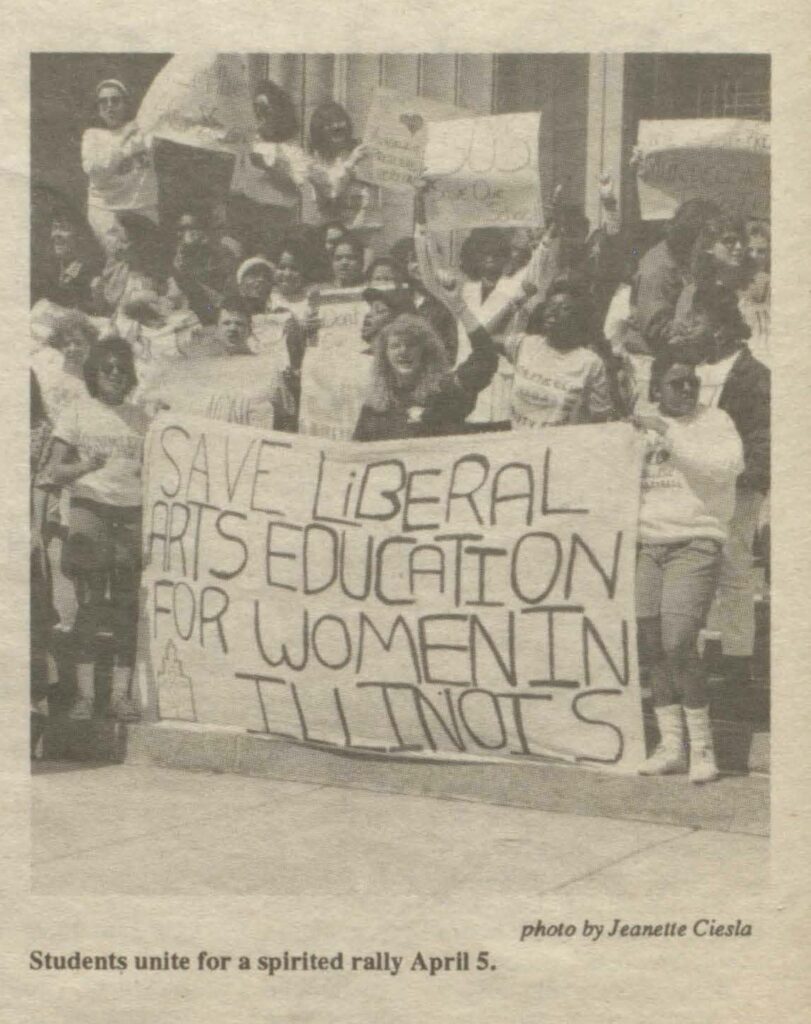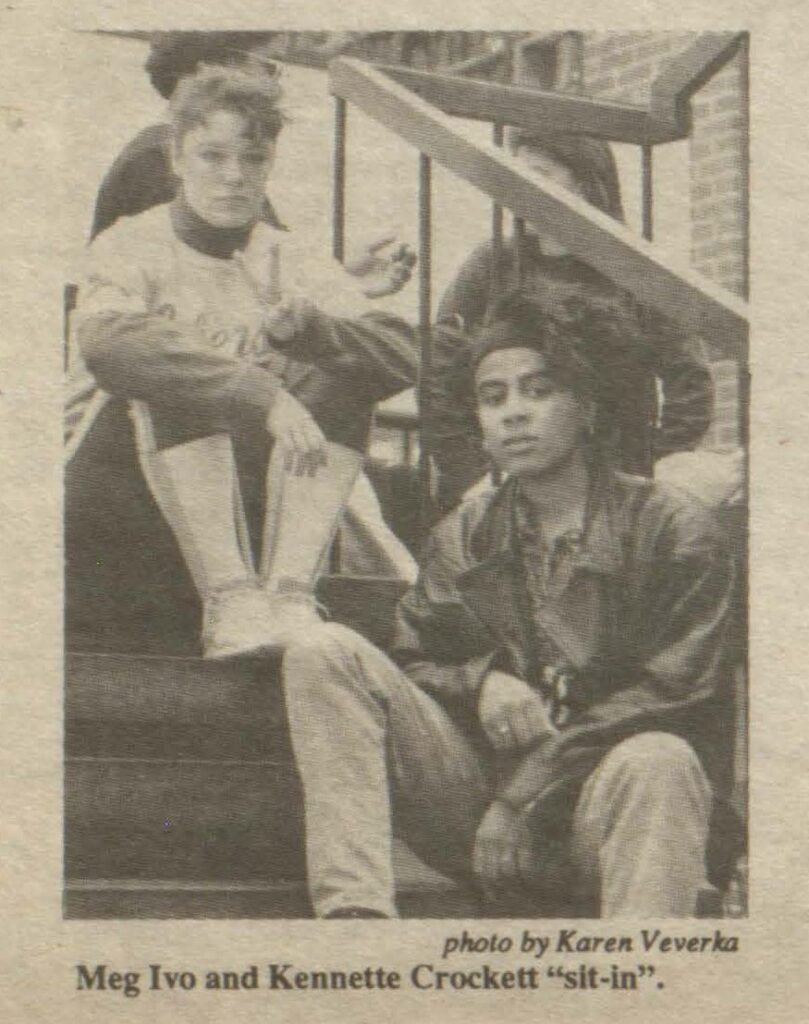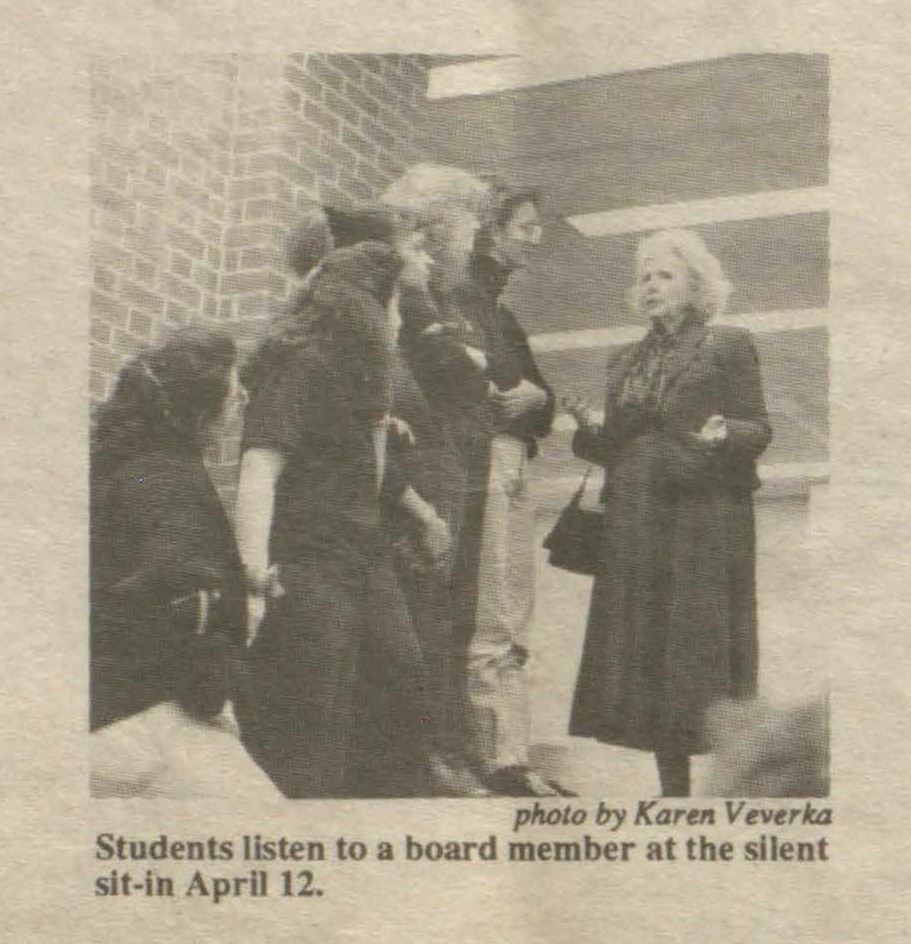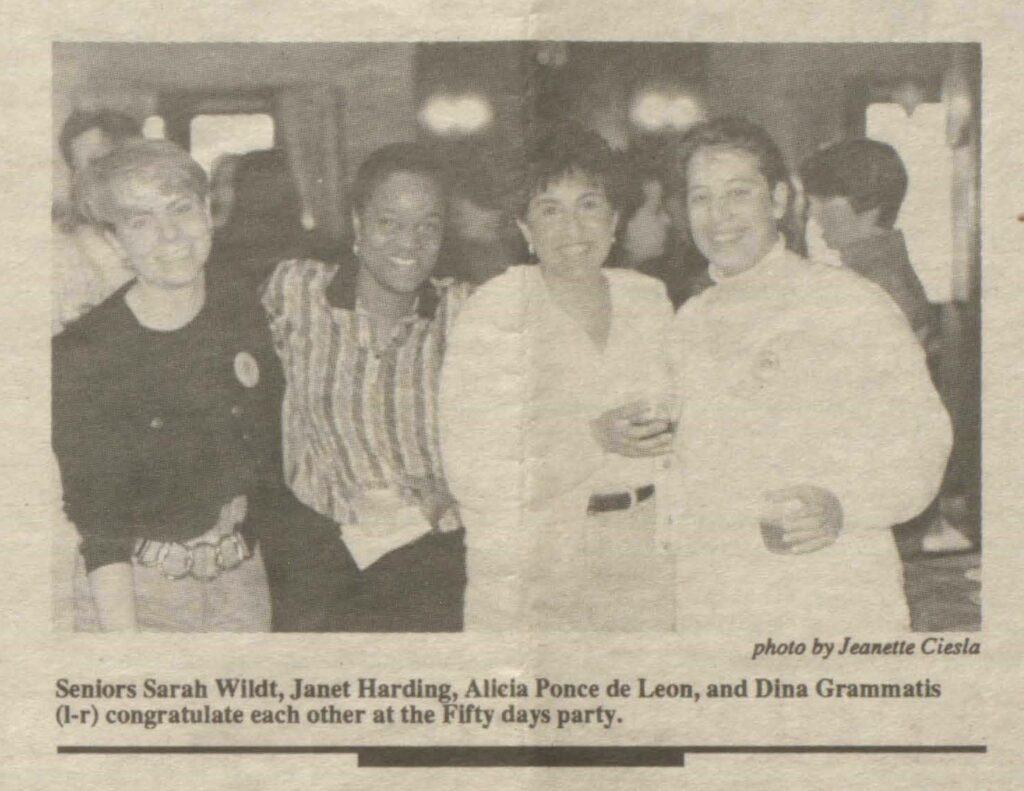“Place” is an important concept to everyone. Yes, it is true that home is where the heart is, but it is undeniable that physical location also means a great deal to individuals. In a society of constant progression, loss of physical and emotional spaces is something many can identify with, including myself. In recent years, the number of private schools and colleges closing or affiliating with one another has sadly grown to become a frequent trend. Common reasons for this outcome include both low enrollment and lack of resources and funding, which may sound familiar to most. Mundelein College* confronted this challenge in the spring of 1991 when their affiliation with Loyola University Chicago was announced. The shock brought forward every emotion possible and sparked an immediate response from the community. The Mundelein Scholar, a student-run newspaper, captured the reactions of students and faculty in real time and forever preserved their efforts to save the last private women’s college in Illinois.
Anyone who has been in this situation can recall the halo of energy cast over the entire community following an announcement that will alter the fate of their beloved school. The Scholar dedicated an entire issue to stories on the affiliation, providing us with a glimpse of how these students felt in the weeks leading up to April 23, 1991. Labeled as a “take over by Loyola” by students at the time, protests were organized along Sheridan Road and sit-ins held on the steps of administration offices. Supported by staff and faculty, students used the skills they had acquired at Mundelein to voice their concerns as board members deliberated on the future of the school. Action took the form of speak-out rallies, letter writing, and telephone campaigns to alumnae to show that the student body is real and not an abstract idea written on a piece of paper.
One quote from student Meg Ivo read, “We had one last chance to grow together as a group and it gave us solidarity”, which many students seemed to identify with. Some students took the lead and fought with all their might. Others reacted differently to the situation and did not want to partake in some of the student-led efforts. Some felt shame as they thought they had let down their community and supporters, including the school’s namesake, Cardinal Mundelein. What makes Mundelein’s fight so unique and admirable is how students responded to each other in this sense. The publication acknowledged that the affiliation brought forward many strong feelings and reassured students to process this change in any way they felt natural. It was understood that reactions were neither black and white nor strictly conservative or radical, but a blend of sadness, anger, contentment, and confusion. Despite the upsetting news, students still celebrated with one another at the Fifty Days party, an annual event for graduating classes, and used it as an opportunity to connect as students one last time. It’s quite commendable that students amid such uncertainty could see so clearly that any reaction was acceptable and treated each other so carefully with compassion. Clearly, Mundelein succeeded in their mission to guide these strong and educated women who embraced the challenge before them with grace and understanding.
While reading this publication, I found myself identifying with every emotion and being able to relate closely to the situation. I have witnessed my suburban grade school, St. Cyprian, and high school, Guerin College Prep, formerly Holy Cross High School and St. Mother Theodore Guerin High School, follow the same path as Mundelein College. While the grade school still stands abandoned, my high school met the wrecking ball, completely erasing the physical memory of the school. The memories that resurfaced from my experience were not negative or bitter, but rather I was reminded of the strong communities who came together to grieve and support one another in this change. I am just one of the thousands of people who can relate to Mundelein’s story and found peace in solidarity. Passionate communities such as these extend over physical boundaries and through time. When I arrived as a freshman at Loyola, I had no knowledge of the affiliation but through my years on campus, Mundelein’s history found me. I believe it has been an important element of understanding my place on this campus, just as Mundelein students once did. As a young woman studying and working in the same buildings that they did for six decades, I understand that I am not alone here. The brave students of Mundelein did in fact save their school, perhaps just not in the way they had originally anticipated.
* Mundelein College, founded and operated by the Sisters of Charity of the Blessed Virgin Mary (BVM), provided education to women from 1930 until 1991, when it affiliated with Loyola University Chicago.
Sam is a student in Loyola University Chicago’s Public History Graduate Program. She graduated with a BA in History in 2022, with minors in Anthropology and Art History. She volunteers at The Village of River Grove’s historical house and is in the process of creating a village archive. When not exploring local histories, she enjoys spending time with family, friends, and her two dogs, Khali and Lola.
Loyola University Chicago’s Women and Leadership Archives Blog is designed to provide a positive environment for the Loyola community to discuss important issues and ideas. Differences of opinion are encouraged. We invite comments in response to posts and ask that you write in a civil and respectful manner. All comments will be screened for tone and content and must include the first and last name of the author and a valid email address. The appearance of comments on the blog does not imply the University’s endorsement or acceptance of views expressed. Questions? Please contact the WLA at wlarchives@LUC.edu.

